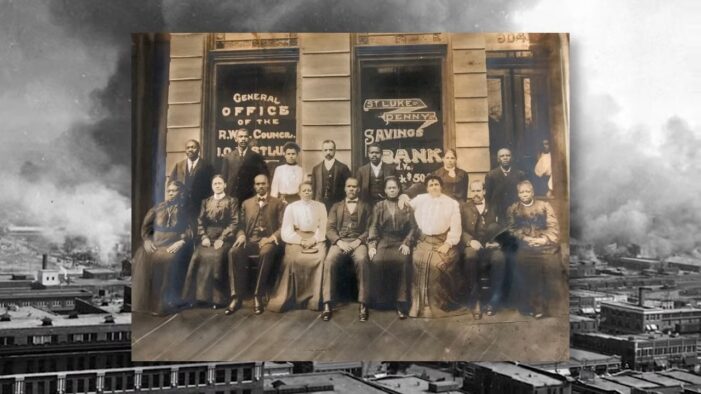Every February, the United States celebrates Black History Month to honor the achievements and contributions of African Americans to the nation’s history and culture. This annual observance is a perfect opportunity for workplaces to embrace diversity, inclusivity, and equity while also educating employees about the rich history and heritage of the Black community. In this comprehensive guide, we will explore various ways to celebrate Black History Month at work and discuss how these efforts can foster a more inclusive and supportive environment for all employees.
The Importance of Celebrating Black History Month at Work
Black History Month is not just a time to remember the accomplishments and contributions of African Americans; it’s also an opportunity to raise awareness and promote understanding of the ongoing struggle for civil rights and equality. By celebrating Black History Month at work, you can foster a greater sense of unity, empathy, and awareness among your employees, which can lead to more open-mindedness, collaboration, and creativity in the workplace.
Creating a Black History Month Committee
To ensure a successful and meaningful celebration of Black History Month, consider establishing a committee dedicated to organizing events and activities. This committee should be diverse and include representatives from various departments and levels of seniority. By involving a wide range of employees, you can ensure that the planned events and activities are both engaging and relevant to everyone in the organization.
Hosting Educational Events and Workshops
One of the most effective ways to celebrate Black History Month is by providing your employees with opportunities to learn about African American history, culture, and contributions. Consider hosting workshops, panel discussions, or guest speaker events that explore various aspects of Black history and culture. Topics can include civil rights, the Harlem Renaissance, or the contributions of African Americans to science, technology, engineering, and mathematics (STEM).
Showcasing Black Art, Literature, and Film

The arts have played a significant role in preserving and promoting African American history and culture. During Black History Month, consider showcasing Black art, literature, and film within your workplace. This can be done by hosting a film screening, curating a mini art exhibit, or organizing a book club that features works by African American authors. By sharing these artistic expressions, you can inspire employees to appreciate and learn more about the rich heritage of the Black community.
Learn About Black History in Your Area
Black history and African American history permeate every facet of our society, but it often goes unnoticed or unexplored. Developing a genuine curiosity and desire to learn can lead to a wealth of knowledge and a deeper appreciation for the profound impact of the Black community on our shared history.
This Black History Month, seize the opportunity to expand your understanding of the historical Black influencers who have shaped your community. Encourage your team to join you in visiting local museums, where you can delve into the rich contributions of the Black community in your area.
Take the time to explore the wealth of resources available at your local library, uncovering the stories of Black leaders who have made a lasting impact on your community. As you gather this knowledge, share it with others and spark conversations that inspire learning and appreciation for the incredible legacy of the Black community.
By taking the initiative to actively seek out and celebrate these stories, you contribute to a greater understanding and appreciation for the vital role that African American history plays in our collective experience.
Supporting Black-Owned Businesses

As a leader, embracing the responsibility of uplifting underrepresented Black entrepreneurs is a powerful way to create positive change in the Black community, not just during Black History Month but all year round. Supporting passionate and dedicated Black business owners not only provides them with the resources they need to succeed but also sends a message to your team about the importance of diversity and inclusion in the business world.
Investing in small Black-owned businesses creates a ripple effect that extends beyond the financial benefits. By encouraging your team to shop at online stores owned by Black individuals, you not only help bolster their businesses but also contribute to raising awareness for their brands and promoting a culture of inclusivity.
This support can be particularly impactful when it is directed towards social enterprises and businesses with a focus on giving back to their communities. By consciously choosing to support these entrepreneurs, you demonstrate your commitment to fostering equitable economic opportunities and empowering the Black community for a better future.
Encouraging Conversations and Sharing Personal Stories
Fostering open dialogue is essential for building understanding and empathy among employees. Encourage employees to share their personal stories and experiences related to race, identity, and heritage. This can be done through group discussions, storytelling sessions, or even a designated online forum. By creating a safe space for these conversations, you can help to break down barriers and foster stronger connections between employees.
Promoting Diversity and Inclusion Beyond Black History Month

While celebrating Black History Month is important, it’s essential to remember that promoting diversity, equity, and inclusion should be an ongoing effort within your organization. Take this opportunity to review your company’s diversity and inclusion policies and practices and consider implementing additional initiatives to foster a more inclusive workplace. Some suggestions include the following:
- Establishing a diversity and inclusion task force to identify areas for improvement and create actionable strategies for change.
- Providing ongoing training and resources to help employees develop cultural competence and understand the importance of inclusion in the workplace.
- Implementing diversity recruitment strategies to attract a more diverse pool of talent.
- Offering mentorship programs or Employee Resource Groups (ERGs) to support underrepresented employees in their professional growth and development.
- Regularly evaluating and updating your company’s diversity and inclusion initiatives to ensure their effectiveness and continued relevance.
Final Words
Celebrating Black History Month at work is a meaningful way to honor the achievements and contributions of African Americans while fostering a more inclusive and supportive environment for all employees. By implementing the strategies and initiatives discussed in this guide, you can create a workplace that not only acknowledges and appreciates the rich heritage of the Black community but also works actively to promote diversity, equity, and inclusion throughout the year.
From hosting educational events to supporting Black-owned businesses, there are numerous ways to celebrate Black History Month at work. Most importantly, remember that the lessons learned and connections made during this time should not be limited to February but should inspire ongoing efforts to create a more inclusive and equitable workplace for all.

